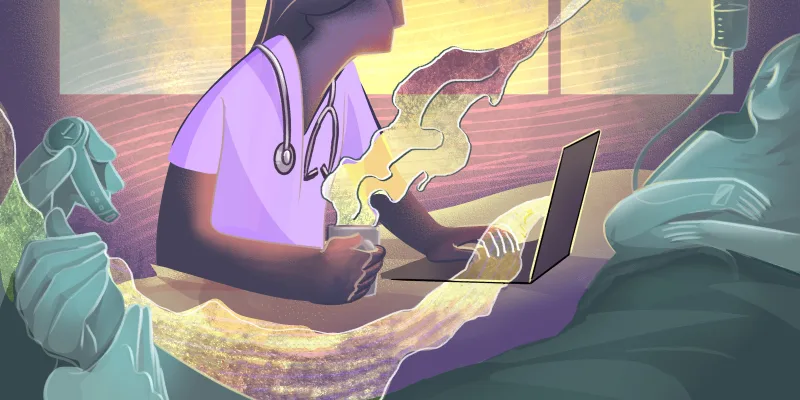
I was recently at a local women physicians networking event sponsored by the state and county medical societies. It was going really well. I shook hands with some people whose names I had seen in emails, on charts, and on Twitter. I met new people who happened to be specialists in areas that I could refer my patients to. Then, we sat down for a talk on sexual harassment and learned about various legal terms and how an employer should handle a complaint. (Did you know that the best way to respond to a complaint is to send both the accused and the accuser home with pay?)
Sexual harassment happens in healthcare too. While most of the women attending the event were employees, it’s important to know what procedures to expect from employers and to know the rights of the people involved. It happens frequently, with half of women in academic medicine reporting being sexually harassed. If this hasn’t happened to you, it’s happened to a colleague, and probably will happen again the future. It’s helpful to know how do we can protect ourselves and each other. If an employer is not following the procedure or doesn’t have anti-harassment policies, maybe it’s time to speak up.
I felt empowered. Then, someone asked a question. She asked if it was too much that accusers are “just believed now” and, since she has two sons, she is worried that her boys will falsely be accused. “What about my boys?” she asked.
I felt shaky.
I was shaking for all of the women who have not been heard. I was shaking for the women whose harassers had a pattern of harassment but still weren’t heard. With the #MeToo stories, it’s not that more accusations of sexual misconduct are just being thrown around and blurted out—it’s that women are sharing the stories that were always there. Women (and men) are starting to be heard and inspiring bravery in others.
But it’s not easy. It took 160 women to testify against Larry Nassar, for instance, and cause changes to the US Olympics gymnastics leadership— change that should have happened many years ago, but nobody was listening to the girls and the women.
“What about my boys?” Well, we can start with teaching our boys and girls the importance of consent. There’s a comical video that likens consenting for sex to consenting for tea: If you boil and make the hot water for tea and then someone changes their mind and doesn’t want the tea anymore, then don’t give them tea. If someone is passed out, they don’t want tea, don’t force them to drink tea.
But this concept of consent is important long before kids become teens. I’m a pediatrician who starts talking to patients about consent as young as 2 years-old. Yes, two. I can only examine them if their parent (or adult caregiver) is present — I suppose at that age what I’m really doing is getting consent from the parents. When the kids are ages 4 and 5, we talk about how it’s important to not touch someone anywhere if they don’t want to be touched, and vice versa. Even if it’s just poking someone or pulling a ponytail. No is no. If a kid doesn’t want to be hugged and kissed by a relative at a family barbecue, then make them say hello and a polite no thanks. No is no. Talk early and often about it.
What’s surprising is the woman who asked the question had adult sons. They were not boys, they were men.
What about men? According to a 2010 study, there is an estimated prevalence of 2–10% for false allegations. The lawyer in the audience said that if you build up a reputation of professional behavior, people will pause at the accusation. She advised everyone to always stay professional during business related events (i.e. in the workplace, at conferences, on business trips, at office parties). In the 3 cases of false accusation she’s had among hundreds, all 3 falsely accused men were targets because their reputations. They all had a history of poor judgment and offensive behavior which made it easy for their colleagues to believe the accuser and not feel surprised by the accusation.
More women are now sharing truths that they have held onto for so long, even when people told them they should be quiet, or that their memories were false.
So, what about the men? They can work on treating all women with respect all the time and listen when women speak up.
Dr. Joannie Yeh is a pediatrician as well as a 2018–2019 Doximity Author.







